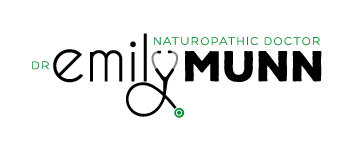Hot Flashes 101
Hot flushes or flashes are also known as vasomotor symptoms (VSM) and are the most common symptom in perimenopause and menopause. Not all women experience them, but many do. For example, 7 out of 10 women experience hot flushes during the menopause transition.
What is a hot flush or flash anyway?
A hot flush or flash (or night sweats -just a hot flush at night) is when you feel warm, start sweating, and/or turn red (flush). Some experiencing light flushing (like when you feel embarrassed) while others become drenched in sweat.
What does it feel like?
Sudden feeling of warmth and often flushing (redness). It can last 30 secs to a few minutes, often affects the face and upper body like the chest, sweating may or may not be involved and some women feel chilled once it passes.
What causes them?
Shifting hormone levels confuse your brain and its “thermostat”. This leads to a decreased tolerance for temperature shifts and causes an increase heart rate and your skin temperature to rise leading to flushing and/or sweating so your body can cool itself off. It is normal for some women to experience vasomotor symptoms like night sweats in their mid-30s.
What triggers them?
Hot flushes are causes by the shift in hormone levels in perimenopause and of the menopause transition, specifically from estrogen. Caffeine and hot beverages, alcohol especially red wine, spicy foods, warm rooms, stress and lack of sleep are also common triggers.
What can I do to treat them?
Limit or avoid caffeine containing beverages like coffee
Limit or avoid alcohol especially red wine
Limit and manage stress (acupuncture can help)
Include joyful movement into your daily routine (weight training 3X per week = best evidence)
Eat phytoestrogen rich foods several times per week (organic soy, flaxseeds -also reduces cholesterol!).
Try supplementing with magnesium plus taurine
Try red clover and sage herbal medicine (can take 4-12 weeks to see improvement)
Gold standard treatment for hot flushes in menopause is Menopause Hormone Therapy (MHT) like transdermal estrogen therapy or a combination of estrogen and progesterone therapy.
Talk to your local ND or other medical professional knowledgable in menopause hormone therapy to see if you are a candidate. MHT can be a real game-changer! And if hormones are not for you, a holistic evidence based plan is still available to you. You do not have to suffer during this phase of life! Ask for help.

